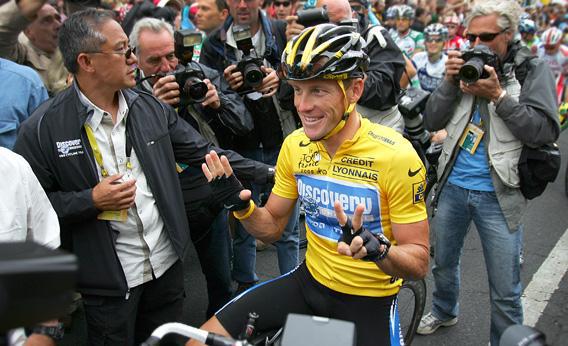The International Cycling Union stripped Lance Armstrong of his Tour de France titles on Monday and accepted the conclusions of the U.S. Anti-Doping Agency that Armstrong had used banned substances for most of his professional career. “Strip” is a graphic description, prompting many Explainer readers want to wonder: Will Armstrong have to return his yellow jerseys?
No. Armstrong’s name will be erased from the record books, and he will have to return approximately $3.8 million in prize money. Armstrong will probably get to hold on to his colorful mementos, though. International Cycling Union, or UCI, rules are silent on the fate of a convicted doper’s yellow jerseys, and a representative for the Tour de France told the Explainer it’s unlikely they will ask Armstrong to return them.
The UCI has tried to recover jerseys in the past. When 1996 winner Bjarne Riis admitted to doping in 2007, the UCI “urge[d] the former rider to return his yellow jersey, the symbol of his victory.” Riis responded that the jersey was in a cardboard box at his house and the UCI could come get it if they wanted it. No one at the UCI or the Tour can remember what happened next, which strongly suggests that they declined the Danish rider’s invitation.
The International Olympic Committee takes their baubles a little more seriously. If the organization decides to strip Armstrong of his bronze from the 2000 Sydney Olympics, it will fall to the U.S. Olympic Committee to recover the medal. Athletes are not legally obligated to comply, but most voluntarily return the medals. Some send them through the mail, while others pass them to their national Olympic committee through an attorney. One Olympian, hammer-thrower Adrian Annus, initially refused to give his medals back after his doping sample was found to be contaminated. Several months later, however, the international condemnation grew too intense, and Annus complied.
Got a question about today’s news? Ask the Explainer.
